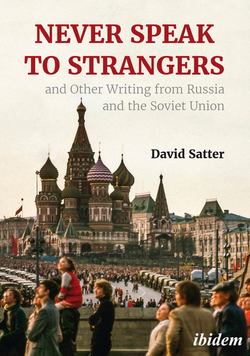Читать книгу Never Speak to Strangers and Other Writing from Russia and the Soviet Union - David Satter - Страница 27
На сайте Литреса книга снята с продажи.
ОглавлениеERZEUGT DURCH JUTOH - BITTE REGISTRIEREN SIE SICH, UM DIESE ZEILE ZU ENTFERNEN
Financial Times, Monday, June 18, 1979
Tensions Between Systems Show at Summit
The first meeting between Mr. Leonid Brezhnev, the Soviet President, and President Carder may improve the atmosphere of Soviet-U.S. relations but, in this neutral and historic Viennese setting, there is ample evidence that interaction between the American and Soviet systems does not come without strain.
Tension derives from the fact that although the U.S. is a democracy and the Soviet Union is a dictatorship with a totalitarian structure, the Soviet leaders strive consistently to depict their country as a democracy, a feat more easily accomplished within the Soviet Union than in Vienna.
The possibility that the U.S. Senate may refuse to ratify SALT 2 has been an important concern at the summit and when Mr. Leonid Zamyatin, chief of international information for the Communist Party Central Committee, was asked at a press conference if the ratification question had been raised in the talks, he said that it had been and was agreed to be an internal matter for each country.
Mr. Zamyatin then added that Mr. Brezhnev expressed his hope and confidence that the Supreme Soviet, which he described as the Soviet legislature, would approve the treaty without amendments.
The Supreme Soviet is a purely formal, powerless body which votes unanimously to approve all policies of the Communist Party leadership and when Mr. Zamyatin’s reference to it was met with laughter in the hall, he said: “I ascribe this laughter to lack of knowledge of the Soviet structure.”
Obligations of protocol and great power equality demand that the two sides have the opportunity for an approximately equal number of press conferences, airport ceremonies and public appearances, but these activities, familiar to the Americans and to any broadly popular democratic politician, are a visible strain for the Soviet leadership.
Mr. Brezhnev has avoided making statements in public and his public appearances, either going into the talks with President Carter or coming out of them, have been as brief as possible.
The one-hour Press conference, at which correspondents had a chance to question Mr. Zamyatin, was at least half taken up with a lengthy description of Mr. Brezhnev’s commitment to peace and to questions by Soviet journalists, who are also Government officials, about U.S. missile deployment and NATO.
The questions were propagandist and raised arguments that could only be answered in considerable detail. As intended, they took up time that could have been used in gaining information.
Mr. Jody Powell, President Carter’s Press secretary, betrayed annoyance with the Soviet journalists’ questions and with statements by Mr. Zamyatin.
Mr. Powell also reacted sarcastically to Mr. Zamyatin’s remarks about ratification.
